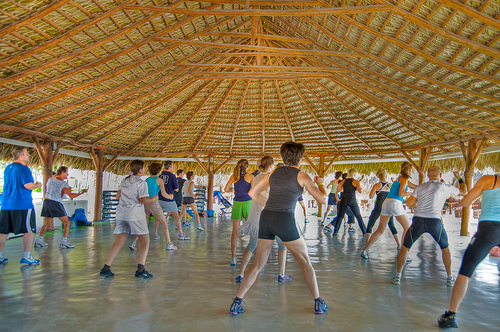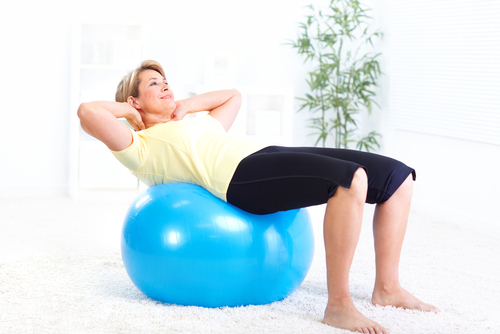
by Zoe Williams
Cholesterol refers to the amount of fat that is being transported through your blood by various proteins called lipoproteins. This can be measured and the results are used to make a prediction about your probability of contracting heart disease. It is therefore important to aim for a good cholesterol count.
Low Density Lipoproteins (LDL) should be kept as low as possible, but High Density Lipoproteins (HDL), also called ‘good cholesterol’, should be higher than a certain level to be effective against coronary disease.
With this in mind, there are various ways in which cholesterol can be controlled. People with lower cholesterol levels will find that their health insurance quotes will be considerably reduced. One of the ways to lower cholesterol levels – and an important one – is exercising. It is only recently that researchers have started understanding how exercise works to reduce Low Density Lipoproteins.
How Exercise Lowers Cholesterol
When you exercise, enzymes are stimulated to help transport LDL from within the blood stream to the liver. The cholesterol is changed into bile for use in the digestion processes or it is simply excreted. Exercising will therefore aid the excretion of cholesterol.
Exercise also helps to increase the size of the lipoproteins, which are a combination of the protein particles and the cholesterol which they carry through the blood stream to the liver. The larger particles cannot so easily find access to the linings of the heart and the blood vessels, so there are fewer deposits of cholesterol to clog the arteries and inhibit the function of the heart.
Which Exercises?
Moderate to intense cardio exercise is the best option to lower your cholesterol quickly and healthily. However, remember that any activity that gets your heart pumping is helpful. Even taking the stairs instead of the escalator when you’re out and about will help.
In order to achieve an even lower cholesterol, combine regular exercise with a healthy diet, and if you’re a smoker, implement a quitting plan! Try these tips on how to get the most out of your exercise, and how to beat your high cholesterol levels:
• Start off slow –
Before starting a new exercise regime, see your health practitioner first and start off slowly, gradually building up to the desired time, speed and distance. If you’re overweight, your doctor will most likely advise you to start very slowly, so as not to overwork your heart.
• Gradually build it up –
It is advised that you spend at least 30 minutes on cardio exercise per day on most days of the week. It can be done in up to three sessions if you do not have the time for one long session. Cardio exercise can be jogging, cycling, swimming, playing tennis, brisk walking or using exercise machines.
• No excuses! –
There will always be a reason not to exercise, and the hardest part is getting out of the door. Once you’re out, your motivation levels will soar! If the weather is bad, there’s no reason not to head to the gym and exercise indoors.
• Beat the boredom –
It’s a great idea to keep things interesting while exercising. This means changing your routine up – try going to exercise classes twice a week, then doing two different forms of cardio twice a week, and change it up regularly. If you’re going for a power walk, try taking a friend with you, or bringing along your favorite music to keep you motivated.
Additional Benefits of Exercise
Apart from lowering cholesterol, regular exercise has a multitude of other benefits. Weight loss is an important one, because you burn kilojoules or calories when exercising. This in turn improves your body shape and your confidence and with that your self-image and even sex life. With a leaner body and a consequent lower blood pressure, comes a reduction in your chances of becoming diabetic or having a stroke or a heart attack.
When you exercise, it stimulates the secretion of the so-called ‘happy drugs’ – hormones that your body manufactures to lift your mood. These include dopamine and serotonin. In this way, exercise definitely helps to combat depression and other mood disorders, as well as being a relief for everyday stress. An activity such as walking also relaxes the mind and body and often helps with problem solving, as there is nothing to distract the thought processes.
Other benefits include better sleep patterns and boosted energy levels. Exercise energises you as it delivers more oxygen and nutrients to your system. It promotes better concentration and brain function and it helps prevent and combat osteoporosis and arthritis by supplying more of the fluid that lubricates the joints of the bones.
(Zoe is an ardent health blogger from the UK, who loves to share her knowledge on health through content on the internet. She regularly writes about how to save money by getting the cheapest health insurance quotes. On weekends, Zoe likes to go for long walks, do a spot of shopping and spend time with family and friends. You can tweet your thoughts on this article to @bloggingstyle.)






Be the first to comment